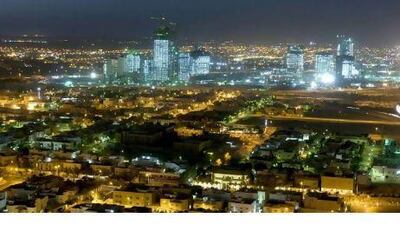Investors are eagerly awaiting an upturn in volumes and values on Gulf stock markets this week from the year's first wave of earnings results from companies in Saudi Arabia.
Are you the strongest link?
Business Quiz 2011 Do you have your finger on the pulse of business? Take our online contest for your chance to win brunch for two. Enter by January 1. Take the quiz
The country is expected to benefit from 250 billion Saudi riyals of infrastructure projects decreed by King Abdullah bin Abdulaziz Al Saud in March to keep up with the demands of a population that has quadrupled in 40 years.
"Saudi Arabia's market looks like it's in decent shape," said Saleem Khokhar, the head of equities at National Bank of Abu Dhabi. "There is a positive momentum that builds over there and continues."
The Tadawul All-Share Index lost 3 per cent last year. However, some sectors have outperformed the index, while others have rewarded investors with hefty dividends.
Cement and insurance have risen 20 per cent and 6.6 per cent, respectively.
Property stocks are also expected to have done well in the fourth quarter, Mr Khokhar said, after King Abdullah in March ordered authorities to build 500,000 low-cost homes by 2014.
Dar Al Arkan, the kingdom's biggest property developer by assets, should also benefit from higher land prices since the March announcement, Mr Khokhar said. The stock rose 15 per cent last month ahead of the results. Saudi Steel Pipes, a manufacturer of welded pipes, and Mohammad Al Mojil Group, a Saudi Arabian construction company, are both stocks in which investors can gain some exposure to the country's growth plans, Mr Khokhar said.
Saudi Arabia's retail sector is also expected to grow fast, driven by a rising population, improving education and changing lifestyles. Jarir Marketing has a strong position in books, office and school supplies, and electronics. The two-month salary bonus provided by King Abdullah to employees in the government sector last year has played a vital role in driving the company's sales growth, Mr Khokhar said.
"Jarir has done quite well [in 2011]," Mr Khokhar said. "The company is a good play on the Saudi population getting more wealth, and it announced a 5 per cent dividend, which is quite strong."
Petrochemicals companies may disappoint for the fourth quarter as crude oil has dropped 12.6 per cent since its high of US$122.99 in April. Brent spot traded at $107.38 a barrel on Friday. The secure availability of feedstock at a low cost has offered a competitive edge to petrochemicals producers when compared with their global peers.
But that may change this year amid expectations of a rise in the price of natural gas currently subsidised through the state oil company Aramco at 75 cents per million British thermal units as consumption outweighs supply. The current price was set in 1998 when crude was at $13 a barrel.
To address the growing concern over the availability of feedstock, petrochemicals firms are now planning new capacities using mixed feed of ethane, propane and butane. Recently started petrochemicals complexes such as Yansab, Saudi Kayan and Petro Rabigh are operating on mixed feed crackers.
2011 was a dire year for investors as regional stock markets shaved off more than $50 billion, buffeted by news of the Arab Spring and Europe's ongoing debt crisis.
Every stock market in the region fell last year except for Qatar's, which gained a marginal 1.3 per cent thanks to increasing gas production, political stability and $88bn of planned government spending. Egypt's stock-market, which closed for 55 days at the start of the uprising against the presidency of Hosni Mubarak, fell by 45 per cent last year, losing $22.7bn of its capitalisation. In Bahrain, where popular unrest also flared last year, the market declined by 20 per cent. Oman's index lost 16.2 per cent of its capitalisation, while Kuwait lost 17 per cent.
In the UAE, the Abu Dhabi Securities Exchange General Index fell by 11.6 per cent, while the Dubai Financial Market General Index lost 16.9 per cent last year.
twitter: Follow our breaking business news and retweet to your followers. Follow us

